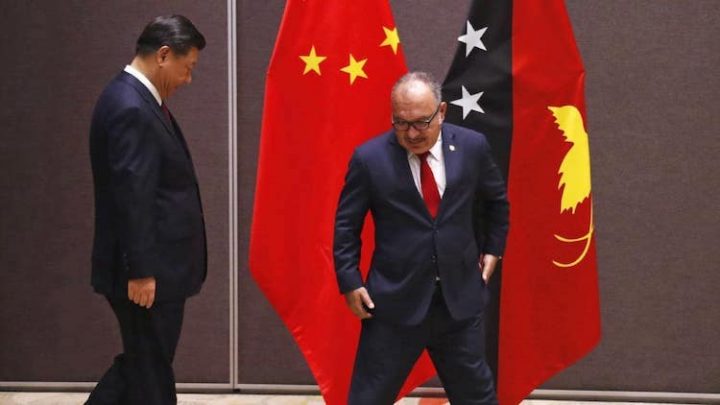By Devinder Kumar
China’s President Xi Jinping has rejected U.S. criticism of Beijing’s Belt and Road Initiative, vowing it is not “a trap” and that it is not designed to serve any hidden geopolitical agenda. The project is also known as Silk Road Economic Belt.
Xi was addressing a meeting of the Asia Pacific Economic Cooperation (APEC) in the capital of PNG and referring to a massive infrastructure and development project spanning Southeast Asia, Central Asia, Africa, the Middle East and Africa, according to Iran’s Press TV.
“It is not targeted against anyone, and it does not exclude anyone. Nor is it a trap, as some people have labelled it,” Xi said and lashed out at Trump administration’s “America First” trade protectionism. In an open criticism of Washington, he underlined that global trade rules should not be applied “with double standards or selfish agendas”.
Xi made the remarks at the APEC summit in Papua New Guinea, where U.S. Vice President Mike Pence touched on the U.S.-China trade dispute, saying that the Trump administration will not change course of tariffs until China “changes its ways”.
While Washington has imposed tariffs on $250 billion in Chinese imports, Beijing has slapped tariffs on $110 billion in imports from the US in retaliation, effectively halting its purchase of key US agricultural exports.
Pence kicked off his address to the summit by slamming China’s Belt and Road Initiative (BRI), arguing that Chinese funding of infrastructure project is burdening developing nations with debt. He also claimed that U.S. commitment to the Indo-Pacific had never been stronger.
“The United States offers a better option. We don’t drown our partners in a sea of debt,” he Pence declared. “We don’t offer a constricting belt or a one-way road,” he added.
Amid fears diplomatic and trade friction could spill over into the military sphere, the American vice president also vowed that the U.S. would join forces with Australia in the development of a new naval base in the region.
Also in an apparently deliberate move to irritate Beijing, Press TV noted, Pence also arranged a meeting with Taiwan’s APEC representative. China claims full sovereignty over Taiwan, which broke away from mainland China during a civil war in 1949. Almost all countries, including the U.S., have recognized that sovereignty under a policy known as “One China.”
Pence also tried to lure Pacific nations into embracing the United States, which he claimed did not offer a “constricting belt or a one-way road”, in a scornful reference to the BRI.
Pence further alleged that the terms of China’s loans were “opaque at best” and “too often, they come with strings attached and lead to staggering debt.” He exhorted countries supporting the Chinese initiative: “Do not accept foreign debt that could compromise your sovereignty,” adding: “We don’t drown our partners in a sea of debt… We don’t coerce, corrupt, or compromise your independence. The United States deals openly and fairly.”
Xi, however, countered Pence’s remarks, warning that no one would gain from escalating tensions between Washington and Beijing. “History has shown that confrontation – whether in the form of a cold war, hot war or trade war – will produce no winners,” he emphasized.
Xi also urged the world to “say no to protectionism and unilateralism,” describing it as a “short-sighted approach” that was “doomed to failure.”
The Australian reported: Chinese President Xi has raised the stakes in the battle for influence in the Pacific, sealing a new US$300 million soft-loan deal with Papua New Guinea, greenlighting a $1.5 billion PNG nickel mine extension, and signing a raft of agreements to boost infrastructure investment, trade and technical co-operation with Australia’s nearest neighbour.
In an eight-page memorandum of understanding signed by Xi and PNG Prime Minister Peter O’Neill, the leaders also agreed to the free movement of politicians and diplomats between the two countries, while China vowed to start work on a new university in O’Neill’s home province.










